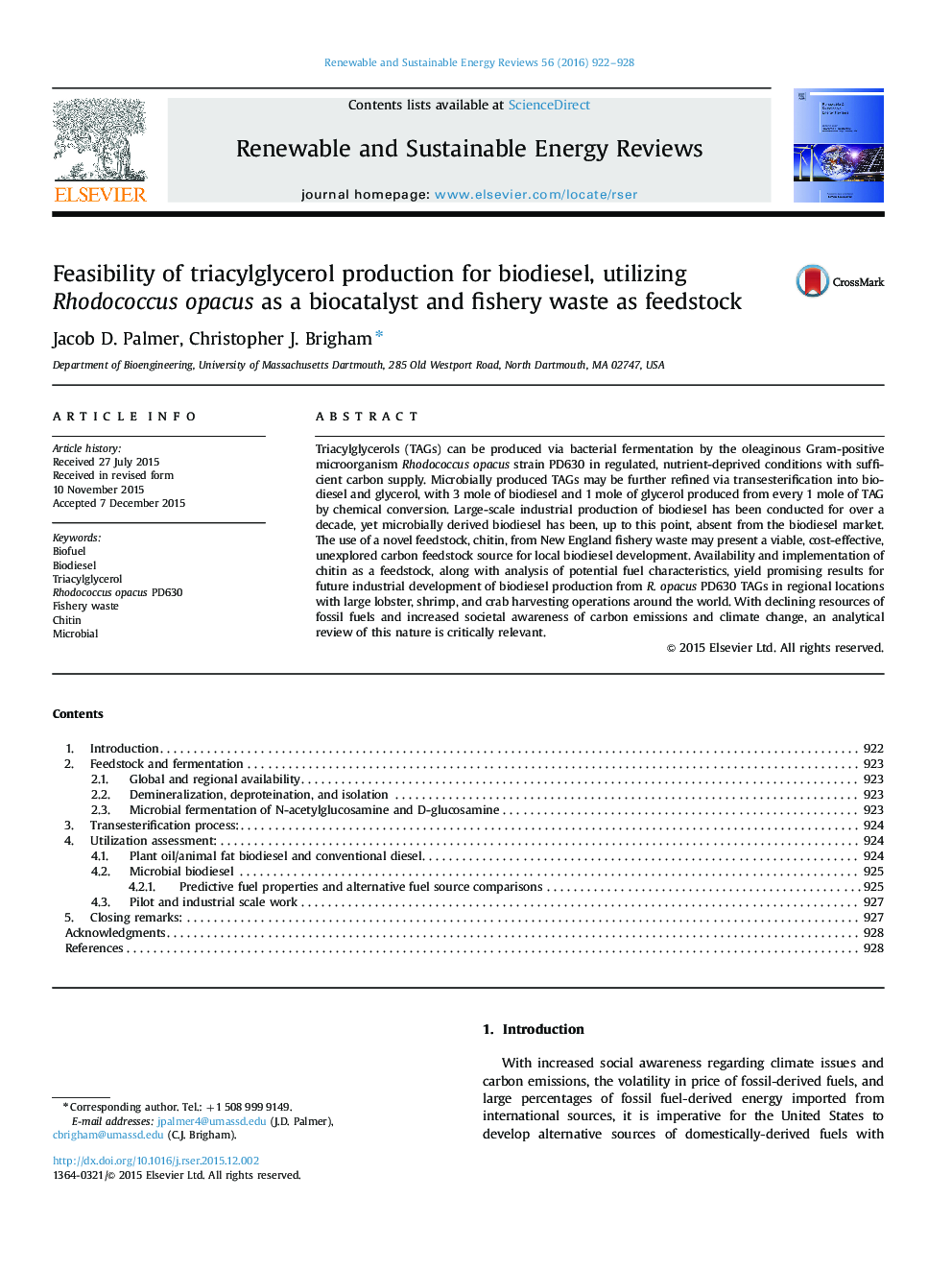| Article ID | Journal | Published Year | Pages | File Type |
|---|---|---|---|---|
| 8114889 | Renewable and Sustainable Energy Reviews | 2016 | 7 Pages |
Abstract
Triacylglycerols (TAGs) can be produced via bacterial fermentation by the oleaginous Gram-positive microorganism Rhodococcus opacus strain PD630 in regulated, nutrient-deprived conditions with sufficient carbon supply. Microbially produced TAGs may be further refined via transesterification into biodiesel and glycerol, with 3Â mole of biodiesel and 1Â mole of glycerol produced from every 1Â mole of TAG by chemical conversion. Large-scale industrial production of biodiesel has been conducted for over a decade, yet microbially derived biodiesel has been, up to this point, absent from the biodiesel market. The use of a novel feedstock, chitin, from New England fishery waste may present a viable, cost-effective, unexplored carbon feedstock source for local biodiesel development. Availability and implementation of chitin as a feedstock, along with analysis of potential fuel characteristics, yield promising results for future industrial development of biodiesel production from R. opacus PD630 TAGs in regional locations with large lobster, shrimp, and crab harvesting operations around the world. With declining resources of fossil fuels and increased societal awareness of carbon emissions and climate change, an analytical review of this nature is critically relevant.
Related Topics
Physical Sciences and Engineering
Energy
Renewable Energy, Sustainability and the Environment
Authors
Jacob D. Palmer, Christopher J. Brigham,
